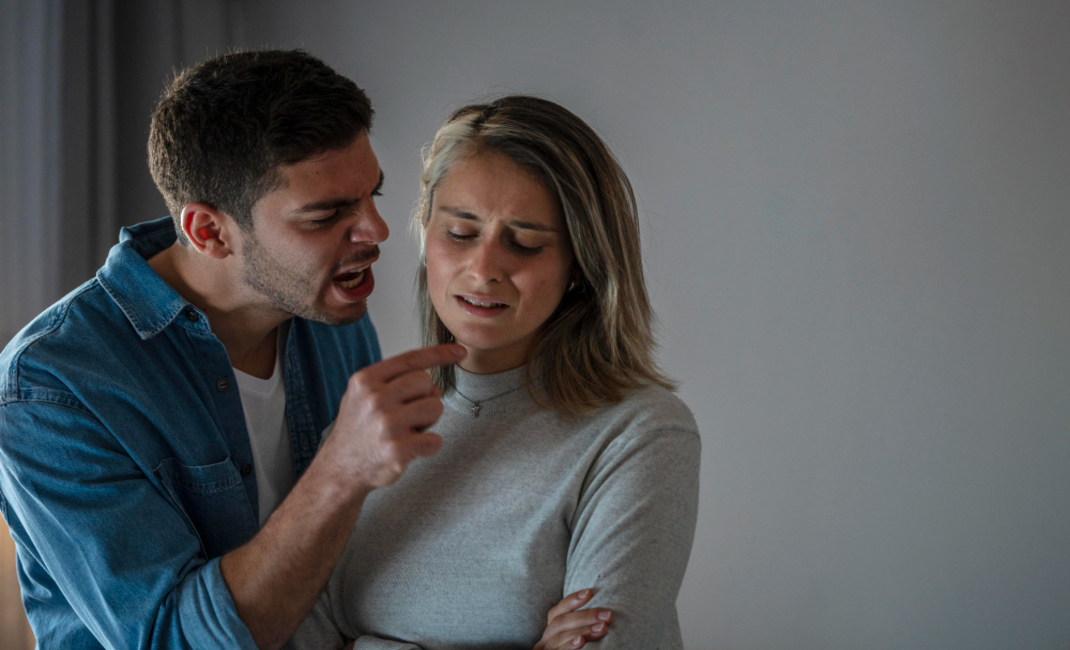How to Get Rid of a Toxic Relationship
In life, relationships play an important role in our well-being and happiness. However, not all relationships are good, and sometimes we find ourselves trapped in toxic ones. Recognizing and dealing with toxic relationships is really essential for our mental and emotional well-being. Here, we’ll explore simple steps to help you break free from a toxic relationship.

Identifying Toxicity
The first thing to do when you want to end a toxic relationship is to understand the signs of its toxicity. Toxic relationships can show up in different ways, like always being negative, trying to control or manipulate you, not giving you support, and sometimes even hurting you emotionally or physically. Think about how the relationship makes you feel. If it brings more sadness than joy, it might not be a good one.
Thinking About Yourself
Take some time to think about yourself. Ask yourself how the relationship you are in makes you feel. Do you feel drained, anxious, or constantly unhappy? Think about what you need and what is important to you. Knowing your feelings and needs will help you make decisions about your relationships.
Setting Boundaries
Setting clear boundaries is really important in a healthy relationship. In an unhealthy relationship, boundaries are often crossed, leading to emotional distress. Identify the behaviors that make you uncomfortable, and tell the other person clearly but politely what is acceptable and what is not. Make sure they understand your limits. Think of it as setting a boundary, saying, “This is where I am comfortable, and that’s where I am not”. This helps keep things in check and makes sure both people know what’s acceptable in the relationship. Communication is key, and setting these boundaries can protect your emotional well-being.
Effective Communication
Talking openly and honestly is really important when dealing with toxic relationships. Find a quiet and private place to talk about your feelings and worries with the other person. Instead of saying things like “You always make me feel…” which might sound like blaming, use “I” statements. For example, say, “I feel hurt when…” This way, you’re expressing your emotions without pointing fingers. Think of it as telling them, “This is how I feel,” without putting the blame on them. This kind of communication can make discussions smoother and help the other person understand how their actions affect you.
Seek Support
Getting out of a bad relationship can be hard, and having support is really important. Share your feelings and what you’re going through with friends, family, or a counselor. Having people who care about you can give you helpful advice, cheer you on, and provide emotional support when things are tough. It’s like having a team to help you through a difficult game. Don’t be afraid to reach out and let others know what you’re dealing with. They can offer different perspectives and help you navigate through the challenges of ending a toxic relationship.
Prioritize Self-Care
Taking care of yourself is essential when ending a bad relationship. Focus on activities that bring you joy and relaxation. Exercise, engage in hobbies, and prioritize your mental and physical well-being. Self-care is not selfish; it’s like giving yourself what you need to start over and feel good again. Imagine it like taking time for a good meal or a nap when you’re tired—it’s about making sure you’re okay so you can face whatever comes next. So, focus on what makes you feel good and strong, because taking care of yourself is a key part of moving forward after a tough situation.
Create a Safety Plan
If any type of abuse is involved in a relationship, it is important to have a safety plan. This plan should have steps to keep you safe, both physically and emotionally. Figure out places where you can be safe, have people who can help you, and think about getting professional help if you need it. It’s like having a strategy to protect yourself and make sure you’re okay. Just like you’d have a plan for a storm or an emergency, this safety plan is for dealing with tough situations and making sure you have the support you need to stay safe and well.
Gradual Disengagement
You don’t have to end the relationship all at once. Sometimes, it’s better to slowly step back. Reduce contact with the person, and give yourself the time and space needed to heal. Doing it bit by bit can be less stressful and make things easier for you. It’s like taking small steps instead of a big jump, giving yourself the chance to heal and move on at a pace that feels right for you.
Embrace Change
Getting out of a toxic relationship often involves significant life changes. Accept and welcome the fact that change is a part of life. Understand that letting go of toxicity opens the door to personal growth and the opportunity for healthier relationships in the future. It’s like making room for good things to come into your life by leaving behind what’s harmful. So, embrace the idea that change can be a positive and necessary part of moving towards a happier and healthier future.
Seek Professional Help
If the toxicity in the relationship is severe or involves abuse, seeking professional help is important. Therapists, counselors, and support groups can give you advice and tools to deal with tough situations. Getting help from professionals can help you make smart choices about your well-being. It’s like having experts on your side to guide you through difficult times and support you in making decisions that are good for you.
Develop a Support System
When you’re trying to get rid of a toxic relationship, having supportive people around you is really important. Be with friends and family who lift you up and cheer you on. Talk to those you trust about what you’re going through, and let them give you emotional support and understanding. It’s like having a team of people who have your back and want to see you feel better. Building this support system can make the journey of ending an unhealthy relationship a bit easier and less lonely.
Focus on Personal Growth
Take this time to work on yourself. Find what you love, set new goals, and rediscover your passions. Building a happy and independent life, apart from toxic relationships, is really important for your well-being. It’s like giving yourself the chance to grow and enjoy things that make you happy. Use this time of change to focus on you and create a life that brings you joy and fulfillment, separate from the negativity of the bad relationship.
Learn from the Experience
Think about what you’ve learned from the bad relationship. Understand how it changed you and what you can learn from it. Use these lessons to make better choices in future relationships and to grow as a person. It’s like turning a tough experience into something positive by using it to become wiser and make smarter decisions in the future. Reflecting on these lessons can help you move forward and have healthier, happier relationships down the road.
Forgive and Let Go
Forgiving the person involved and yourself is a powerful step towards healing. If you keep holding onto anger, it can stop you from growing. Forgiving is like letting go of the heavy feelings and moving ahead with peace. It’s about freeing yourself from the emotional weight and finding a sense of calm. So, try to forgive—it’s a powerful way to help yourself heal and move on from the emotional burden that might be holding you back.
Conclusion
Deciding to end a bad relationship takes a lot of courage and strength. By recognizing toxicity, setting boundaries, seeking support, and prioritizing self-care, you can break free from harmful dynamics and pave the way for a healthier, happier future. Always remember that you deserve relationships that make you happy and feel good. Taking steps to leave toxic relationships is a good way to take care of yourself. It might not be easy, but it’s worth it to have a happier and healthier life.


